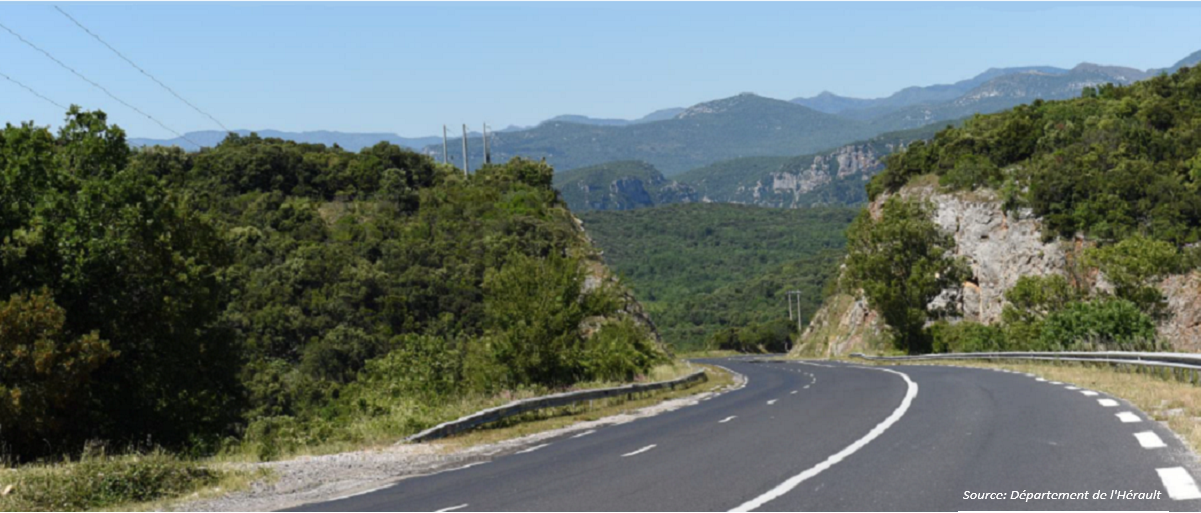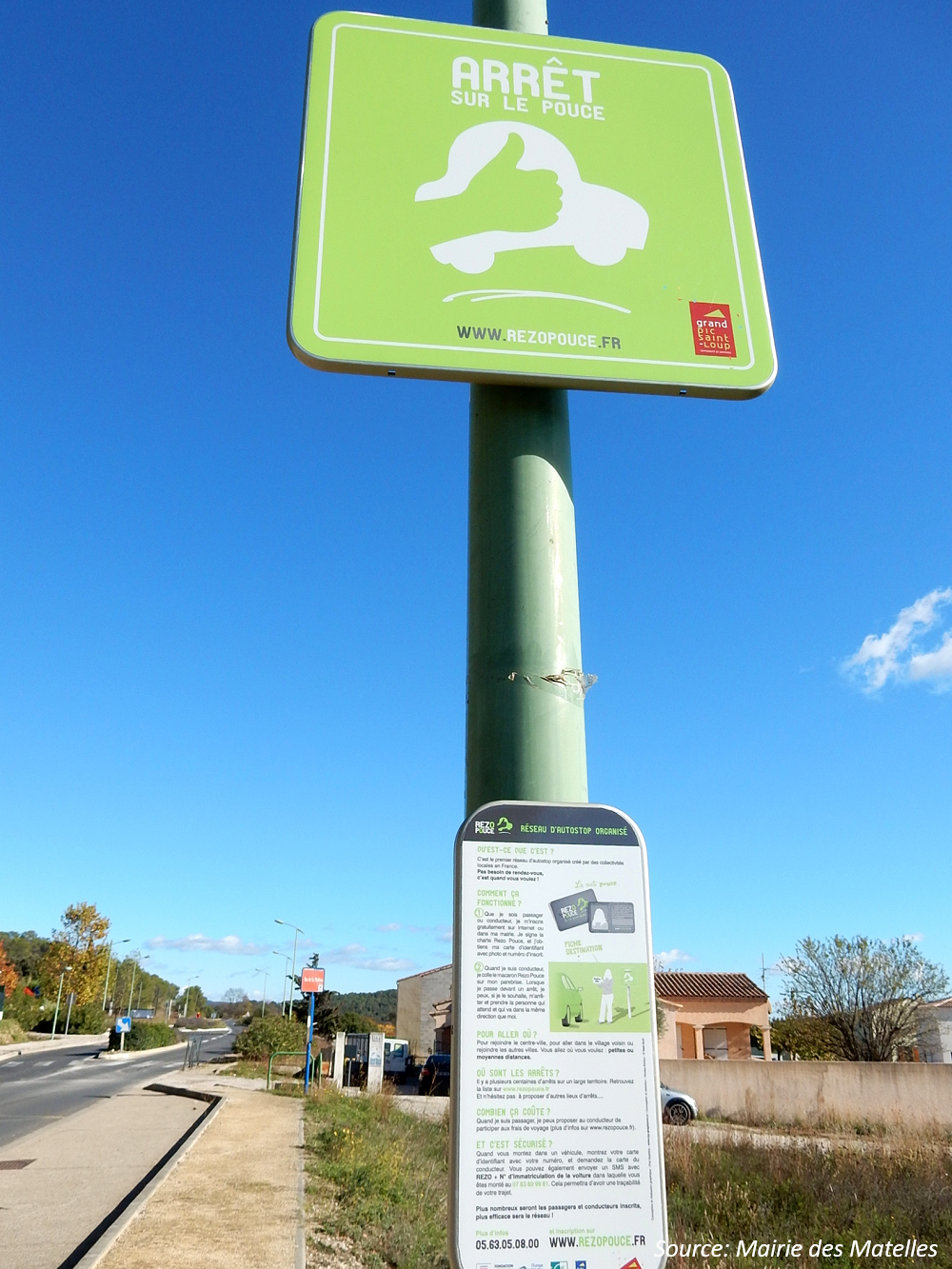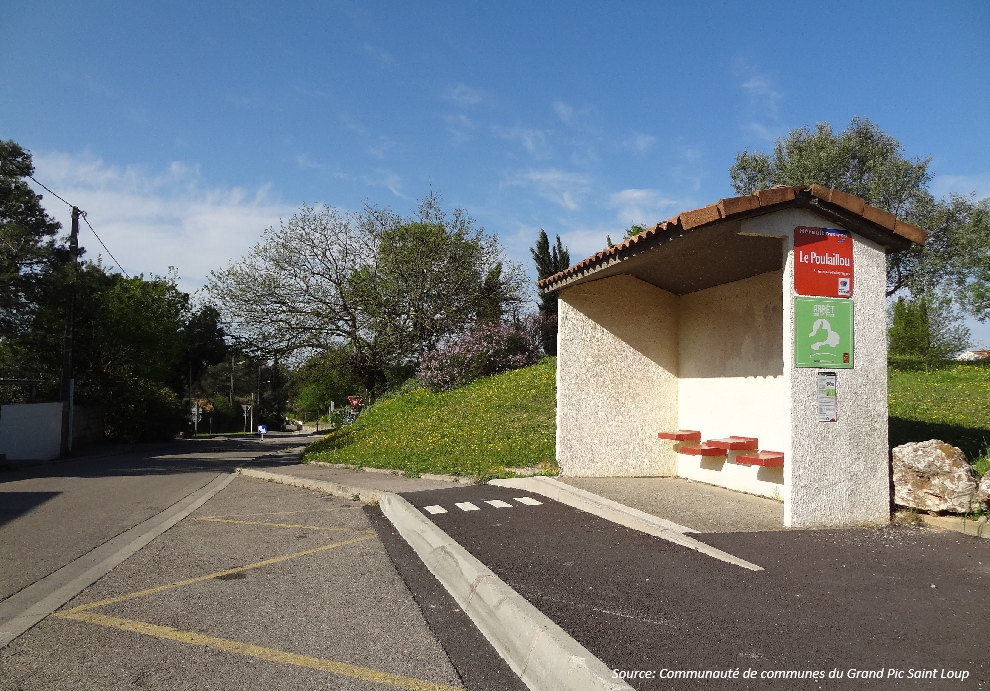
Herault
Standard Public Transport and Ride Sharing
France
Herault is a French department in the region of Occitanie in the South of France. The department counts approximately 1 000 000 inhabitants. These are scattered over 342 federation of municipalities of which 11 have more than 10 000 inhabitants. (population density 182 inhab/km²). Population is increasing over the years. 900 000 inhabitants live in the 5 largest agglomerations.
The Mediterranean coastline is well populated. Montpellier, is the largest city of the department with a population of around 280 000 inhabitants. The seaside has a high population density of 200 inhab/km², while regions in the north are much more rural and density drops to 100 or even 10 inhab/km². The figure makes it clear that non coastal areas are very car dependant, especially the region North of Montpellier. It is exactly in the area North of Montpellier that this pilot is situated.
Objectives
The main objectives of the Herault Inclusive Mobility initiative are to:
- Contribute to more pleasant and vibrant rural villages and communities via reinforced social networks thanks to improved and reinforced human relationships.
- Provide mobility to less mobile people and provide an alternative to individual car use.
- 10% of general population uses the RezoPouce (organised hitchhiking) service as a driver or user and 40% of the most fragile part of the population (people having no access to car).
- Gather knowledge on succes factors of the service.
Description of actions
Herault Inclusive Mobility initiative sets out to complete the following actions, designed to improve mobility:
- Install around 200 RezoPouce hitch-hike stops in the two federations of municipalities North of Montpellier, Grand Pic St Loup and Cevennes Gourgeoises et Sum noises. These stops are safe and well recognisable places where hitch hikers and drivers meet. The aim is to cover the area around the RN984 corridor, a route that connects the area with Montpellier as illustrated on the map.
- Organise targeted animation and promotion in the area via transition agents. Transition agents are people that promote sustainable mobility in general. These transition agents know very well the rural communities and select the target groups most interested in the RezoPouce service. They contact the selected target groups via different means especially face to face communication.
- Organise user registration at municipalities, close to the rural communities.
- Set up an evaluation framework for analyse userprofiles, drivers and barries to use the service.


